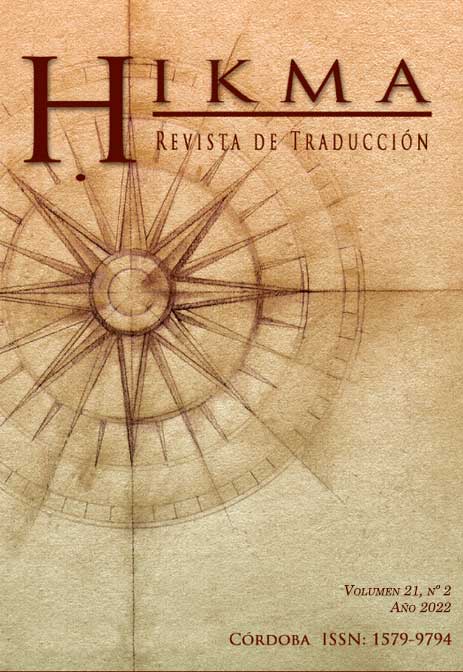The cultural filtering and translator’s strategies: Study of The Tragic Sense of Life’s Chinese translation based on the Variation Theory
Main Article Content
Abstract
The variations in the translation are the result of the measures adopted by the translator, which reveal the history, the socio-political environment and the culture of the host country. (Álvarez and Vidal, 1996, p. 5) This paper studies the Chinese versions of The Tragic Sense of Life on the basis of the mechanism of the cultural filters of the Variation Theory. After the introduction and the theoretical framework, the analysis is organized at three levels: the social context, the linguistic translation and the traditional culture, in order to investigate what variations have suffered the Chinese translation of The Tragic Sense of Life, the possible reasons as well as the strategies of the translator.
Keywords: The Variation Theory, Cultural filtering, The Tragic Sense of Life, Spanish-Chinese translation, Cross-cultural study
Downloads
Article Details

This work is licensed under a Creative Commons Attribution-NonCommercial-ShareAlike 4.0 International License.
Authors who publish with this journal agree to the following terms:
1. Authors retain copyright and grant the journal right of first publication with the work simultaneously licensed under a Creative Commons Attribution License that allows others to share the work with an acknowledgement of the work's authorship and initial publication in this journal.
2. Authors are able to enter into separate, additional contractual arrangements for the non-exclusive distribution of the journal's published version of the work (e.g., post it to an institutional repository or publish it in a book), with an acknowledgement of its initial publication in this journal.
3. Authors are permitted and encouraged to post their work online (e.g., in institutional repositories or on their website) prior to and during the submission process, as it can lead to productive exchanges, as well as earlier and greater citation of published work (See The Effect of Open Access).

